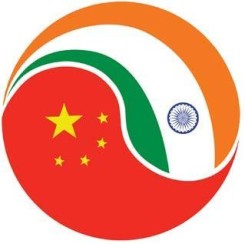Just because the Chinese bus has slowed down a bit, that doesn’t mean that the Indian economy can get on that bus now. Some economists are of this view that the China’s slowdown might not do much good to the Indian economy.China is slowing down sharply and it might record a growth rate lower than 7% this time. One of the anticipated reason is the economic weakness of Europe and U.S which has resulted in decline in China’s export.The other major reason are the rising wages. This price spike has whittled China’s comparitive advantage undermining its position of being the manufacturing powerhouse of the world.
There are substantial repercussions of this economic slowdown in China after all it is the world’s second largest economy. Talking in the India context, it has some two fold impacts. The first ray of hope is that rising wages are forcing China to exit the “low value manufacturing” market which is a sector mastered by China. This implies that investors might look for a new land to re-allocate manufacturing bases.This won’t be the first time when such a transition would take place. Japan also took an exit from the low value market when its wages rose in the 1960’s giving space to the other legends like Taiwan, Singapore, South Korea and Hong Kong. Thus, this might be a good oppurtunity for India to become an alternate choice for the investors. But stands strongly the inevitable question that “How do we achieve this” ?Some economic pundits see no reason for investors to flock to India. Instead they insist that they might invest in more attractive destinations like Africa. The problem with India is that most of its problems are self created.A lot of reforms are needed to make India a suitable suitor for the investors.The poor infrastucture, the indirect tax system and restrictive labour laws here are the main barriers. Also multiple levels of authority and bureaucracy are the innate problems of the Indian economy. Our democracy is characterized and influenced by the political scenario. Take GST, about which Deputy Chairman of Planning Commission,Mr Montek Singh Ahluwalia recently said that the implementation of the Goods and Services Tax (GST) will be the best signal to tell investors globally that “India is open for business.” is the need of the hour.It is ready to roll out only if our political parties stop fighting for the candy just to let Indians taste the chocolate.The implementation of a new tax system is unambiguously good for the nation’s growth and development. India might get a larger pie of the manufactuting cake only if the nation leaders “grow up” soon enough to realize it.
The other implication is an immediate one due to the “resource intensive” growth of China. The cooling of demand in China will bring down the prices heavily.The lifted commodity price are now expeced to come down. In the process countries like India which are net importers might benifit. But the other side of the story is a bit discouraging. Some economists are of the view that this might be detrimental for the Indian economy after all. The bottom line is that it might be bad news for us as well as we are not exactly in competion with China. China is too far ahead and our exports to other countries are a function of China’s growth. If the Chinese economy grows,the world will also grow and thus our exports will expand.
Though placing India and China together might sound like counting apples and bananas alike, India might have an enormous advantage in this economic ballgame only if our political leaders take the wise decisions timely. The opportunity cost of this lost opportunity might be too heavy.


































